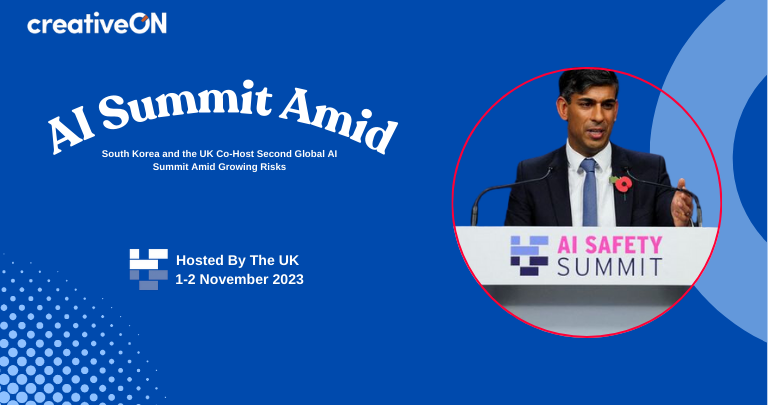This week, South Korea and the United Kingdom are joining forces to co-host the second global AI summit in Seoul. The event comes at a crucial time as the rapid pace of AI innovation since the inaugural summit in November has left governments worldwide scrambling to address a growing array of risks associated with the technology.
UK Prime Minister Rishi Sunak and South Korean President Yoon Suk Yeol will oversee a virtual summit on Tuesday. This summit is taking place amid increasing calls for better regulation of artificial intelligence, despite sharp disagreements on how the technology may impact humanity.
In a joint opinion article published in the UK’s i newspaper and South Korea’s JoongAng Ilbo, Sunak and Yoon emphasized the urgency of establishing global AI standards. The article, entitled “Only Global AI Standards Can Stop a Race to the Bottom,” highlighted the need for cohesive efforts in shaping AI governance while acknowledging that significant gaps remain.
Originally, the November event was billed as the AI Safety Summit. However, the scope of challenges has since expanded, prompting the rebranding of this week’s meetings as the AI Seoul Summit. According to the summit’s website, discussions will focus on three key priorities: AI safety, innovation, and inclusion.
A global AI safety report released on Friday outlined several emerging risks, including large-scale labor market impacts, AI-enabled hacking, potential biological attacks, and the overarching concern of society losing control over general-purpose AI. The report, backed by experts from over 30 countries, underscores that the future of AI will be shaped by the decisions made by societies and governments.
The report also acknowledges the widening spectrum of risks posed by rapidly evolving AI technology. These include not only existential threats to humanity but also issues such as AI inequality, data scarcity, misuse of copyright material, and the significant environmental impact due to the vast amounts of electricity consumed by
AI data centers.
The first summit, held in the UK last November, saw high-profile attendees like Tesla’s Elon Musk and OpenAI CEO Sam Altman, who mingled with some of their fiercest critics. The event culminated in the signing of the “Bletchley Declaration” by China, the United States, and other nations, committing to collective management of AI risks.
However, details about the attendees for the virtual summit on Tuesday remain unclear. An in-person session chaired by UK and South Korean ministers is scheduled for Wednesday, though the specific participants have not yet been disclosed.
Additionally, a separate AI forum hosted by South Korea on Wednesday is expected to attract notable figures such as Jack Clark, co-founder of AI safety and research company Anthropic. Executives from major tech companies including OpenAI, Google DeepMind, Microsoft, Meta, and IBM are also anticipated to attend, according to the event’s website.
As the global community continues to grapple with the complex challenges and opportunities presented by AI, the collaborative efforts of nations like South Korea and the UK in hosting such summits are critical. These events provide a platform for dialogue, policy-making, and the establishment of international standards that can guide the responsible development and deployment of AI technologies.

